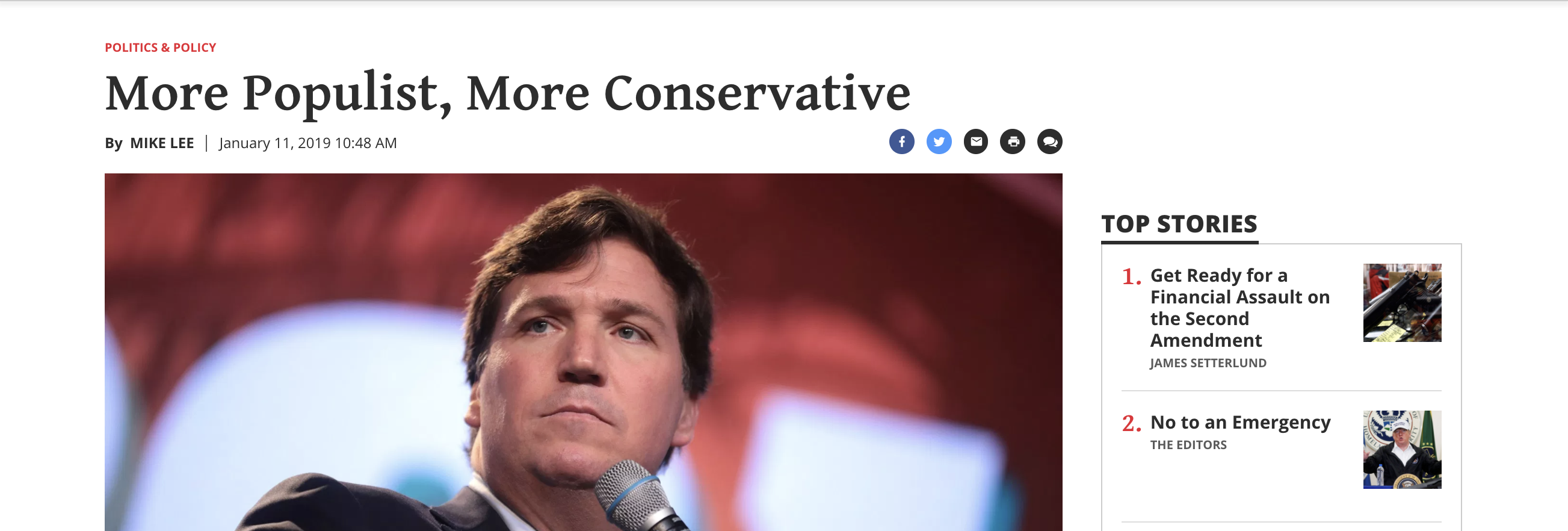Sen. Lee Delivers Remarks on March for Life
Jan 16, 2019
Floor Remarks on the March for Life
Jan 16, 2019
More Populist, More Conservative
Jan 11, 2019

Protecting Our Rural Communities
Jan 11, 2019
Let’s End Government Shutdowns for Good
Jan 11, 2019
Sens. Lee and Romney Introduce the Protect Utah's Rural Economy Act
Jan 10, 2019
Sen. Lee Calls for End to Shutdown and Border Crisis
Jan 8, 2019
Defending Religious Liberty from Progressive Extremists
Dec 21, 2018
Religious liberty is one of the defining principles of our founding and our history. We are incredibly fortunate that for nearly two and half centuries, our tradition of religious freedom – guaranteed to us under the First Amendment – has accommodated people of many different faiths and deeply held beliefs.
So even though the Supreme Court ruled that the states must legally change the definition of marriage to include same-sex marriage in Obergefell v. Hodges in 2015, Americans are still constitutionally allowed to disagree with this definition on the basis of their religion or personal beliefs.
As Justice Anthony Kennedy wrote in his Obergefell v. Hodges opinion, “The First Amendment ensures that religious organizations and persons are given proper protection as they seek to teach the principles that are so fulfilling and so central to their lives and faiths… In turn, those who believe allowing same-sex marriage is proper or indeed essential, whether as a matter of religious conviction or secular belief, may engage those who disagree with their view in an open and searching debate.”
But this week, the Senate was close to confirming a nominee to the Equal Employment Opportunity Commission who threatens to deny this principle. Chai Feldblum, who was first nominated to the EEOC by President Obama in 2009, was re-nominated to the commission’s five-member board by President Trump last December. And unfortunately, Feldblum has had a history of pushing a political agenda on marriage at the expense of religious freedom.
Feldblum has written that she sees the conflict between religious belief and LGBT liberty as “a zero-sum game” where “a gain for one side necessarily entails a corresponding loss for the other side.” And there is no mystery about which side she thinks should win. In a separate speech she said, “There can be a conflict between religious liberty and sexual liberty, but in almost all cases the sexual liberty should win… I’m having a hard time coming up with any case in which religious liberty should win.”
These are not the words of an open-minded jurist. Rather, they are the words of an activist intent on stamping out all opposition to her cause. In fact, she has even gone so far as to say that “granting liberty to gay people… cannot be adequately advanced if pockets of resistance are permitted to flourish.”
As an EEOC commissioner, Feldblum would be in a prime position to stamp out those pockets of resistance. As she herself told the Washington Blade in 2015, “The EEOC has jurisdiction only over employment. But other federal agencies that enforce sex discrimination provisions often look to our interpretation for guidance in interpreting the laws they enforce.”
And that is why I objected to and blocked her re-confirmation on the Senate floor this week: the federal government should never be used as a tool to stamp out religious liberty. While Obergefell v. Hodges changed the legal definition of marriage – which Americans are free to agree with if they choose – the First Amendment also unequivocally protects an individual’s right to believe in traditional marriage.
We are blessed enough to live in a country that has historically valued religious freedom and understood its importance to human happiness and social flourishing. It is of the utmost importance that we confirm nominees to our government who will continue to uphold and protect this freedom.
